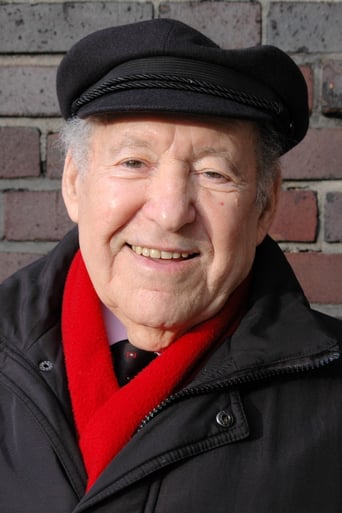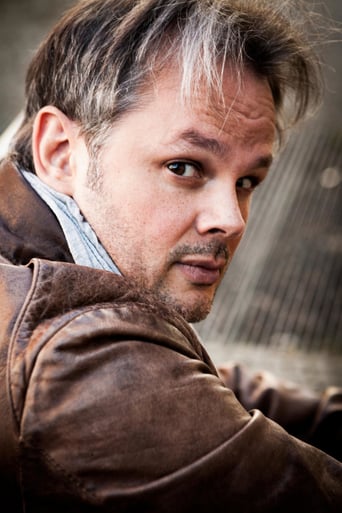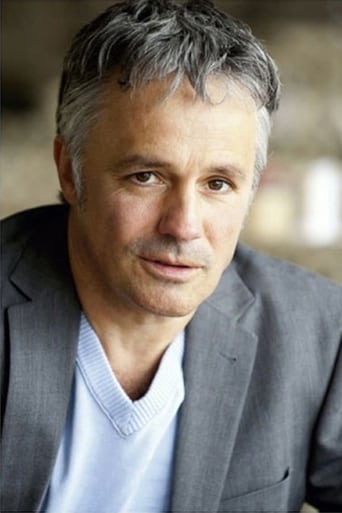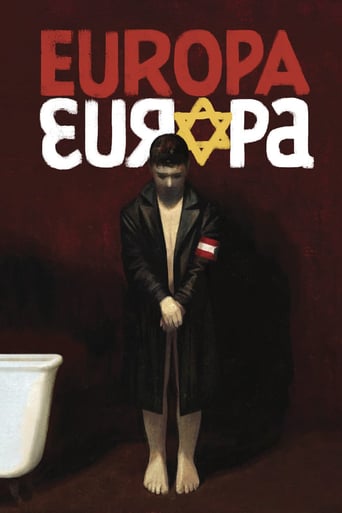
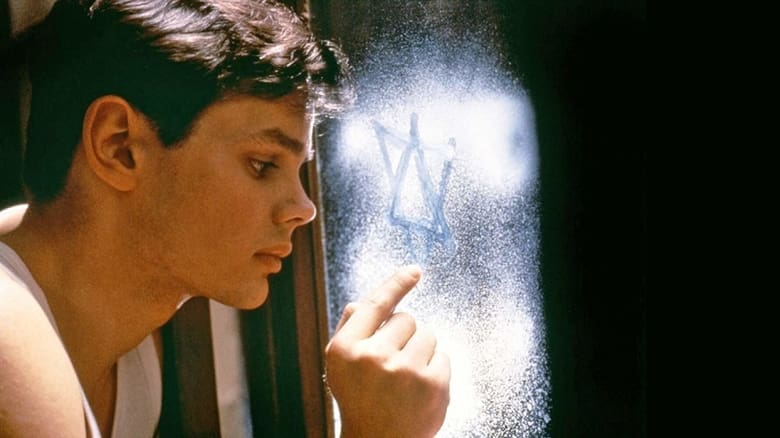
Europa Europa (1991)
A Jewish boy separated from his family in the early days of WWII poses as a German orphan and is taken into the heart of the Nazi world as a 'war hero' and eventually becomes a Hitler Youth.
Watch Trailer
Cast


Similar titles
Reviews
Europa Europa is the remarkable true story of Salomon Perel, a young teenage Polish Jew, who passed himself off as, not merely German, but also, as a member of the highest order of the Hitler Youth, while all the time sticking to his Judaic roots, in order to survive the war. The storytelling aspects of the film gives this it drive and purpose and are excellent - based on Perel's extraordinary autobiography it avoids extrapolation and sticks to his tale.It scores very high in two vital aspects - one, the script is superb, (It was Oscar nominated) and two it was shot in German which given it subject matter was no small achievement.The film is well directed, though because of it's use of studio lighting and bright colors it has not aged as well as some of the Holocaust corpus.There are perhaps better films and books that express the absolute evil of the death camps, Weisel and Levi being two prime examples in authorship, but this is a unique perspective as it is not centered on the Shoah but rather on the unique conundrum of daring to survive by living in the heart of the Nazis' twisted dream, and one definitely worth your time - it is a truly fascinating true story with some strong adventure and drama elements.
This is an unbelievable movie. The question that one asks is, "is it true?" What happens in this movie and what Solomon experiences is very unbelievable, but stranger things have happened. At the close to the movie, some old guy appears and is talking in Jewish, and this is not translated - this could be who the movie is about. As Solomon is walking away at the end of the movie, he says, "let us not talk about what happened as nobody is likely to believe me." Europa, Europa is a movie about a young Jewish boy caught up in the events in World War II. After his sister is killed by marauding Nazi's, he and his family flee to Poland, but this place of safety is short lived as Hitler and Stalin invade. Solomon flees to the USSR, as he knows that he will be treated much better than in Nazi Germany. Here he is raised a good communist in an orphanage, but soon Hitler invades and he is caught up in the Nazi invasion. His ability to speak both Russian and German, and the fact that he hides his Jewish heritage, enables him to survive and become of use to the Germans. Then he inadvertently captures a Russian position and is sent back to Berlin a hero, where he joins the Hitler Youth - all the while denying his Jewish heritage.This is a movie about denial of self, and the struggle to survive in a world where your people are being persecuted. Constantly through out the movie the description of the war being called a holy war against the Jews is raised. Solomon is constantly forced to deny his heritage, though by fleeing into Russia he knows that he has a better chance of survival. Still, he easily turns away from God to embrace communism so that he might survive. By doing this, he is chastised by the Catholics, but embraced by the communist leaders. He even eats pork so that nobody will suspect who he is, but his penis is the one thing that will give him away, and must keep that hidden.This proves difficult when the woman whom all of the Hitler Youth desire, chooses him to be her companion. He so much wants to be with her, but knows that he cannot go past a certain point for he knows that he will reveal the truth about himself to her. She does care, especially how she readily speaks of wanting to cut a Jew's throat. It is the one thing that he cannot change, though he tries everything to do it. In the end he must hide it from everybody.The movie also looks at the theme of loneliness. Solomon is alone among enemies and no matter how he tries to escape, he cannot. This is not growth through suffering, this is simply trying to survive knowing that he cannot truly befriend anybody because they kill his people and will kill him if they know the truth. Those who do know the truth end up dying - all except for his girlfriend's mother, who comforts him in his suffering. She states that the older are more accepting while the young are easily swayed by the beliefs pushed into their minds.Another idea is the stupidity of the Aryan philosophy. The irony is clearly seen when Solomon is measured up by a Nazi scientist and describes him as an Aryan, just after describing the hideousness of the Jews. This is a minor point as the major idea is how a Jew is able to live among Nazi's and they don't even realise the truth.
"The doer' is merely a fiction added to the deed. The deed is everything." - Nietzsche "We are what we pretend to be, so we must be careful about what we pretend to be." - Kurt Vonnegut Based on Salomon Perel's account of his actual experiences, director Agnieszka Holland's "Europa Europa" finds a teenage Jew, Solek, fleeing Germany and escaping to Russia in an attempt to evade the Nazis. With his sister killed and possibly also his brother, Solek weasels his way into a Russian orphanage and later a Hitler Youth camp – what safer place than the belly of the beast? - at which he learns Marxist ideology and becomes a bilingual interpreter for the Russian Army. Meanwhile, Stalin and Hitler have signed their non-aggression pact.Solek's life quickly settles into a pattern of separation, loss, opportunism, luck and adaptability. The only tell-tale sign of his Jewish identity is his circumcised penis, which he grows ashamed of and must keep hidden at all costs. The film is structured as an absurdist, seemingly free-form adventure, but its various vignettes all probe the same questions. What is the psychological consequence of a Jew pretending to be a Nazi? What makes a Jew? What makes a Nazi? What is "self" when all identities are changeable and as deceptive as uniforms?By the film's end, Solek has survived Hitler's purge by becoming a good Stalinist and a good Hitler youth. In other words, to preserve his Jewishness Solek became the antithesis of the Jew. Mirrored to this is one soldier's need to hide his homosexuality by wearing a straight, heterosexual identity, a deceptive stance itself taken by Germany, her citizens, whatever their private leanings, forced to express outward support of Hitler. In this way the film recalls Bertolucci's "The Conformist" and Wertmuller's "Seven Beauties", in which our heroes must either conform or debase/lower themselves in order to survive fascism. Indeed, everyone in the film is shown to be playing games of make believe. Solek's impersonation of a Hitler youth, for example, is no different to the Hitler youths themselves, all of whom unconsciously adopt idealized, "Aryan personas". Later, a German teacher uses Solek as an example of "perfect Aryan bone structure", not because of Solek's bone structure, but because he thinks Solek is a full blooded Aryan. Rather than a species who believes what it sees, man is one whom sees what it already believes.And so Solek eventually survives his ordeals with his original "identity" intact. His immutable "essence", he believes, if such a thing exists, is always more important that "identity", which is always dependent on the perceptions and beliefs of others. But so fragile is Solek's belief in his "essence", so uncertain is he of his own "Jewishness", that Solek's whole being begins to boil down to his phallus. He does not know what a Jew is, but he knows that they are circumcised. And so, quite arbitrarily, he is a Jew.These shifting uniforms were themselves expressed on a grand scale by Germany during the war, in which the nation was herself caught struggling to reconcile several identities: Hitler's desire to murder Jews/gypsies/undesirables/prisoners, conflicting with the need for massive amounts of slave labour, conflicting further with food shortages for feeding these slaves, conflicting even further with food shortages for feeding the populace. The struggles of Germany was a struggle to reconcile these contradictions: killing undesirables but relying on the labour of undesirables for survival. The desire for a "racially pure" society, which nevertheless relied on the import of Poles and many other foreigners to maintain the war economy and farms. Toward the tail end of the war, Hitler's subordinates had come up with elaborate mathematical calculations to soften the blow of these contradictions. It was found that few fed slaves were more productive than many unfed slaves. Therefore, specific amounts were killed, specific amounts were put to work, and food was specifically rationed out between civilians, slaves and the armed forces. The rest were arbitrarily starved. All idealogical identities, all branches of Nazisism, could therefore be met. This neither-nor/either-or flux is both the nature of all identity, and the means by which man reconciles the more base parts of his nature.The film's title, "Europa Europa", encapsulates all of Holland's points. The double "Europe" refers not only to a land mass filled with many countries and multiple national identities, but to what Holland calls both a "nostalgic representation of values, heritage, cultures and morality" and its ugly underside, "the Europe that nurtured this century's greatest evil". Concerned with how perception shapes all identity, Holland's next film, "Olivier, Olivier", likewise has a double title, and serves as a loose sequel to "Europa Europa".8.5/10 - Makes a good companion piece to Holland's "Angry Harvest", Wertmuller's "Seven Beauties", Techine's "Strayed" and Cavani's problematic, sadomasochistic "The Night Porter". See too "The Damned", "The garden of the Finzi Continis" and "The Tin Drum".
The incredible story of Solomon Perel, an Eastern European Jewish teen who escaped the Holocaust by posing as a Nazi, might be difficult to swallow if it wasn't entirely true. Separated from his family and captured by German troops, Solomon escaped execution by claiming to be a 'pure bred' German orphan, apparently with enough conviction to be welcomed warmly into the ranks of his captors. The film explains the success of his desperate charade by presenting him as a passive victim of chance and circumstance. In constant jeopardy of being discovered, he is inevitably saved by one miracle of fate after another: in the Wermacht, in a Hitler Youth School, and finally as a prisoner of the Russians, awaiting the firing squad. The fact that the Germans embraced him as a model Aryan only reinforces the total blindness of their 'Master Race' conceit. With a rich sense of irony and Old World ambiguity (helping to explain the double title) veteran writer director Agnieszka Holland shows the German people to be simultaneously capable of uncomplicated affection and irrational hatred.


